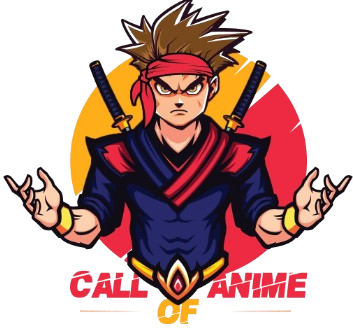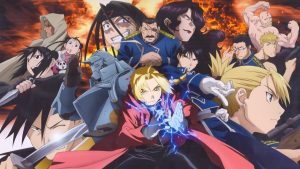Fullmetal Alchemist: Brotherhood is an anime series that delves into the complex themes of sacrifice, the consequences of ambition, and the unyielding quest for redemption. Adapted from Hiromu Arakawa’s manga, this anime explores the lives of two brothers, Edward and Alphonse Elric, whose attempts to bring their mother back to life through alchemy result in devastating consequences. The show’s intricate storytelling, philosophical reflections, and emotional depth have made it a landmark in the world of anime.
At its core, Fullmetal Alchemist: Brotherhood revolves around the theme of the price of ambition. The characters in the story constantly grapple with the consequences of their desires for power, knowledge, or personal fulfillment. The series presents ambition as both a driving force and a potential downfall, suggesting that the pursuit of goals without regard for the cost can lead to catastrophic outcomes.
The Elric Brothers: A Tale of Sacrifice
The Elric brothers are the epitome of ambition, but their story also serves as a cautionary tale. Edward and Alphonse, in their desperation to resurrect their mother, attempt a forbidden human transmutation, an alchemical process that violates the fundamental law of equivalent exchange. In the process, Edward loses his arm and leg, while Alphonse’s body is entirely consumed, leaving only his soul bound to a suit of armor.
Their ambition, though well-intentioned, comes at a great price. This is the central moral of the series: in the pursuit of something as complex as life or death, there will always be a cost. The Elrics’ journey to reclaim their bodies becomes not just about seeking redemption, but about learning the true meaning of sacrifice and the consequences of their reckless pursuit of knowledge.
The Philosophical Underpinnings: Equivalent Exchange
One of the most powerful and recurring concepts in the series is “equivalent exchange.” In alchemy, this principle dictates that in order to gain something, something of equal value must be lost. This reflects the broader theme that everything in life comes at a cost. The Elric brothers’ initial failure to understand this concept fully leads them to make a grave mistake, and much of the plot revolves around them learning how to deal with the consequences of their ambition.
The idea of equivalent exchange also extends beyond the brothers. Many of the characters in the series are faced with their own versions of this principle. For instance, the villainous Father, who seeks to obtain god-like power, is willing to sacrifice entire nations to achieve his goals. His ambition, much like that of the Elrics, is driven by a desire for something beyond human reach. His actions, however, show that the higher the ambition, the greater the price to pay.
Ambition and Morality: The Moral Dilemma of Power
Throughout Fullmetal Alchemist: Brotherhood, the characters constantly wrestle with the ethics of using power for personal gain. One of the most poignant examples of this is the character of Roy Mustang, a military officer who uses alchemy for the greater good but struggles with the moral compromises necessary to advance in the military hierarchy. His ambition to create a better world often brings him to the brink of moral conflict, forcing him to confront the gray areas of good and evil.
Similarly, the character of Scar is driven by revenge, having lost his family in a war initiated by the government. His desire for justice leads him to a path of destruction, showing how ambition fueled by anger and hatred can blind individuals to the broader consequences of their actions.
The show’s handling of these themes suggests that ambition, in its purest form, is neither inherently good nor evil. Instead, it is the way in which one channels that ambition that ultimately defines their character and shapes their fate.
The Consequences of Seeking Godhood: Father’s Tragic Path
The character of Father, the central antagonist of the series, exemplifies the ultimate cost of unchecked ambition. Father seeks to transcend humanity and become a god, willing to sacrifice everything—his subordinates, entire populations, and his own humanity—in pursuit of ultimate power. His ambition leads him to manipulate the lives of others, showing the dark side of ambition when it is fueled by narcissism and a thirst for control.
Father’s downfall is a powerful reminder that seeking to manipulate the fundamental laws of existence comes with consequences that not only affect the individual but ripple through the lives of others. In the end, he is consumed by his own ambition, losing everything he had worked for.
Redemption and the Price of Ambition
The resolution of Fullmetal Alchemist: Brotherhood comes when the characters, particularly the Elric brothers, confront the consequences of their actions and seek redemption. Their journey is a process of learning to accept the price of their ambitions and understanding that personal growth often involves painful sacrifices. The series teaches that redemption is not about erasing mistakes, but about acknowledging them and making the conscious choice to move forward with a deeper understanding of the cost of one’s desires.
In the end, the message of Fullmetal Alchemist: Brotherhood is clear: ambition, while a powerful motivator, must be tempered with wisdom and responsibility. The pursuit of one’s desires should be balanced with an awareness of the consequences, both personal and societal. The series reminds us that, in life, nothing comes without a cost, and the true measure of ambition is found not in the heights one reaches, but in the depth of understanding one gains along the way.
Conclusion
Fullmetal Alchemist: Brotherhood is a rich narrative about ambition, sacrifice, and the complexity of human desires. Its exploration of these themes through the lives of the Elric brothers and the characters they encounter paints a poignant picture of how ambition can shape a person’s fate. Ultimately, the series suggests that while ambition is necessary for growth and change, it must be tempered with the wisdom of understanding the price one is willing to pay. In a world governed by the laws of equivalent exchange, the pursuit of one’s dreams must be balanced with the understanding that everything, even the most noble desires, comes at a cost.

